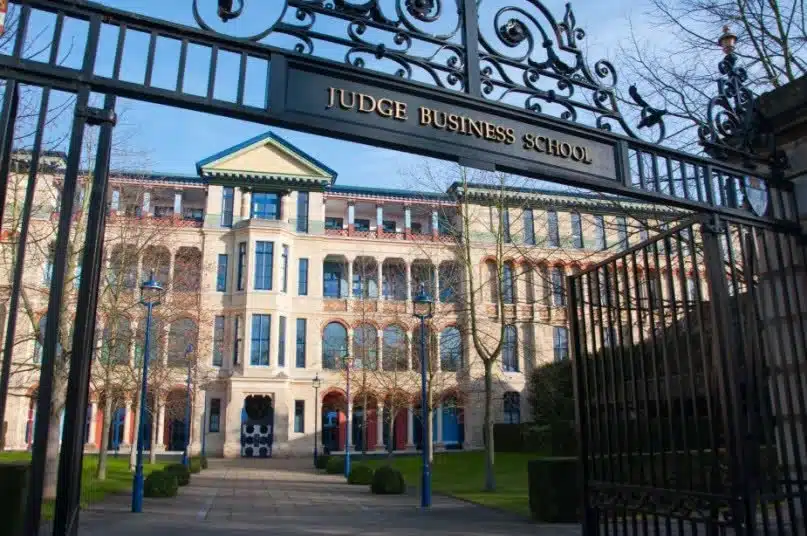Free MBA Feedback Essay Samples
After graduating from my Master’s program with flying colors, I took up a role in the Advisory Services of a multinational professional services firm. As a fresh graduate in my first full-time job, I envisioned taking the consulting world by storm and impressing my managers and partners beyond anything they had ever seen. Owing to my naiveté and impatience to excel beyond my peers, I overloaded myself with more project tasks than I could efficiently handle and still volunteered to lead additional side projects. Though I completed all tasks, I was quickly burning out and was not even close to achieving the superior performance of the impressive consultant I wanted to be.
I proudly submitted my recommendations for my first project but was unpleasantly surprised to discover that my engagement manager was highly critical of the quality of my deliverable. My recommendations were not tailored to the client’s industry and deviated from the methodology outlined by the firm. Being used to people praising my work in school, my pride in my work had made me ignorant to the needs of the client and resulted in my manager’s having to cover for gaps in my recommendations.
This experience shook my confidence and compelled me to reflect on how I could improve. A deep self-analysis of my performance led me to a big revelation – to be successful, I had to put myself in my customer’s position and think backwards to create an effective solution!
I took this feedback and resulting revelation to heart and decided to select projects where I would be most impactful. I focused on the industry-specific solution delivery methodology to ensure highest quality. I learned to politely say ‘no’ to opportunities, when my schedule did not permit, to ensure that I dedicated enough time and energy to perform at a high level on projects I was working on. I started managing my time efficiently and set daily goals while communicating the status to my managers, ensuring that I was always in control of my schedule. In turn, this actually allowed me the flexibility to pick up extra projects I was passionate about. Also, I made it a point to connect and collaborate with my peers instead of competing with them. I learned to ask for help and leverage their knowledge to successfully deliver solutions and to help them when I had something to contribute. Finally, the most important change that I made was my attitude towards feedback: I solicited feedback more often regarding my performance to ensure that I was constantly improving my skills. I never wanted to be surprised again.
These changes helped me bring a sharp improvement in my performance on future projects, and soon my managers and partners rated me as a top performer on the team. In the following year, I received three ‘Bravo’ awards, awarded to top 10% of performers on every project. This change in attitude towards work has helped me the most in being successful as consultant.
It was February 2011, my fourth week in investment management. Early in the morning, I had a video conference call with the Hong Kong office to discuss a corporate restructuring engagement in Sri Lanka. Amidst many different points of view, I was able to actively contribute to the discussion after preparing for this call for over a week.
Later that day, I received a call from the Investment Banking division head, asking me if I would like to take the lead role in the engagement, which involved valuing the company and providing recommendations to shareholders regarding its financial viability. It was a tall order for someone like me who did not have much experience in capital markets, and therefore I humbly declined his request. After a few minutes, he came to see me and took me to a quick coffee chat. It was the most life-changing coffee chat I have ever had.
“Life is all about the risks we take, and you often regret the risks that you did not take. Sometimes you may fail, but taking risks is one of the best ways to make significant progress in your career. Think again about my request and let me know your final decision by tomorrow”. This was what my boss told me in our chat. I spent the next few hours assessing the pros and cons of the situation, and decided to accept the offer. I was temporarily transferred to the Investment Banking division that same evening.
The next three months were the most hectic months of my life. Managing client expectations and meeting deadlines was challenging, but I learned valuable lessons. I assembled a team of analysts, and we worked long hours and in collaboration with other divisions to prepare the final report. With the guidance and mentorship of my division head, I was able to submit the report to the Securities and Exchange Commission for approval just before the deadline.
The client was very pleased with the outcome and sent a letter of appreciation to the division head acknowledging my contribution to the project. In the subsequent months, I was permanently transferred to the Investment Banking division and received a promotion to an Associate role. Finally, I was selected out of more than 100 team members to represent the company in a weekly live financial education TV show on national television network sponsored by the Securities and Exchange Commission.
In the next few years, I joined the World Bank Group, where I led financial engineering and structuring aspects of challenging and transformative infrastructure projects across multiple countries, and founded my own venture in polythene recycling to address a social issue in waste management.
I truly believe that the feedback I received in the 15-minute coffee chat I had in 2011 taught me a great deal about risk-taking and decision-making and has had a significant impact on my career. I am certain I would not have been where I am today in my professional career without it.

אוניברסיטת קיימברידג'
